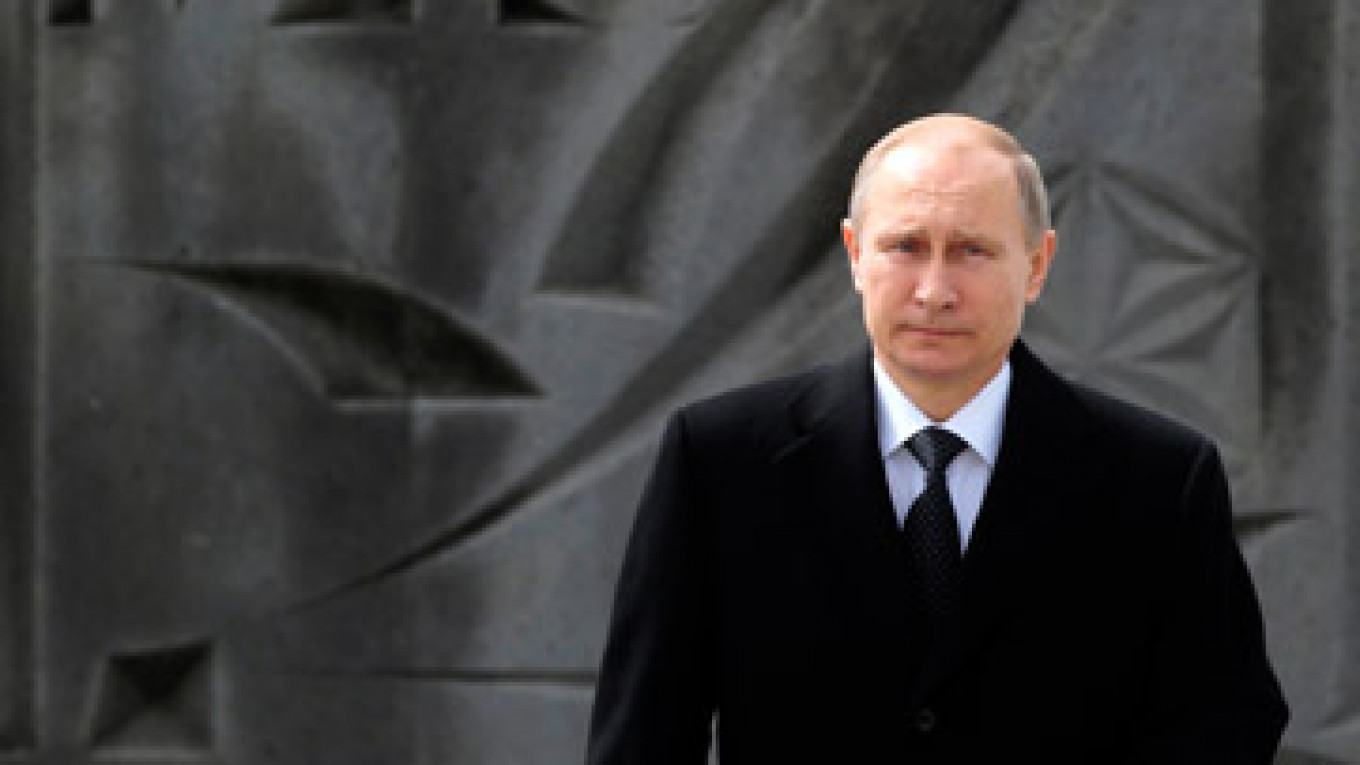Intercepted calls showed that the United States helped separatists in Russia's North Caucasus in the 2000s, President Vladimir Putin claimed in a new documentary in which he underscored his suspicions of the West.
The two-hour documentary, which began airing Sunday afternoon on the state-owned Rossia-1 television channel, was dedicated to Putin's 15 years in office. It focused on Putin's achievements as well as challenges to his rule — which the producers and Putin blame on Western interference.
Putin was elected Russian president on March 26, 2000, after spending three months as acting president, and was sworn in on May 7, 2000.
At one of Putin's first meetings with the country's top businessmen after it was announced he would run for president, they told him he would not be the real ruler of the state, the president said in the documentary.
"Some of them came to me in the White House [government headquarters], sat opposite me and said: 'You understand that you will never be president here.' I said we would see," Putin said, without specifying the names of his interlocutors.
The documentary showed Putin interviewed at the Kremlin in the dimly-lit St. Alexander's Hall. In excerpts released shortly before the film's broadcast, Putin said Russian intelligence agencies had intercepted calls between separatists in the North Caucasus and the U.S. intelligence based in Azerbaijan during the early 2000s, proving that Washington was helping the insurgents.
Following a disastrous war in the 1990s, Russia fought Islamic insurgents in Chechnya and neighboring regions in the volatile North Caucasus.
"They were actually helping them, even with transportation," Putin said.
Putin said he raised the issue with then-U.S. President George W. Bush, who promised to "kick the ass" of the intelligence officers in question. But in the end, Putin said the Russian intelligence agency FSB received a letter from its "American counterparts" who asserted their right to "support all opposition forces in Russia," including the Islamic separatists in the Caucasus.
Putin also expressed his fears that the West wishes Russia harm as he recalled how some world leaders told him they would not mind Russia's possible disintegration.
"My counterparts, a lot of presidents and a prime minister told me later on that they had decided for themselves by then that Russia would cease to exist in its current form," he said, referring to the time period around the second conflict in the Caucasus. "The only question was when it would happen and what the consequences would be."
Putin's interview revealed the depth of his disappointment in the West.
The West, in Putin's words, is friendly to Russia only when it is on its knees.
"They like us when we need humanitarian aid, then everything is fine, they send us potatoes," Putin said, speaking about Western attitudes toward Russia.
Whenever Russia begins to grow economically and politically, the West, according to Putin, begins to punish it. Putin said that he does not view Western sanctions against Russia as a reaction to last year's annexation of the Crimean Peninsula, but rather "an attempt to hamper Russia's development.
"This is a policy we have been familiar with for centuries."
The president defended the annexation of Crimea as a response to the will of the people, which restored "historic justice."
Putin, who hasn't announced whether he will run for presidency in 2018, insisted that he still hasn't lost touch with ordinary Russians and that he "may very well imagine a life beyond this position."
The documentary also featured comments from members of Putin's inner circle.
Former Finance Minister Alexei Kudrin, who had worked with Putin since the 1990s in St. Petersburg, explained Putin's attitude to the mass protests in Moscow that followed the allegedly rigged State Duma elections at the end of 2011.
"Since these people [members of the middle class] were strongly mixed up with more radical elements and with nationalists, I saw later that Putin didn't want and didn't see any representatives for [starting] a dialogue," Kudrin said in the film.
Another longtime Putin ally, German Gref, who served in the government as economic development minister until 2007 and now heads the state-owned Sberbank, explained the much-discussed issue of why Putin is so often late for official engagements.
"He listens to everybody and lets everybody speak — sometimes even more than is needed. Sometimes meetings with him go on for hours, which affects his schedule," Gref said.
The latest poll by the independent Levada agency showed that the approval rating for Putin, whose third term in office ends in 2018, was a whopping 86 percent in April.
(AP, MT)
A Message from The Moscow Times:
Dear readers,
We are facing unprecedented challenges. Russia's Prosecutor General's Office has designated The Moscow Times as an "undesirable" organization, criminalizing our work and putting our staff at risk of prosecution. This follows our earlier unjust labeling as a "foreign agent."
These actions are direct attempts to silence independent journalism in Russia. The authorities claim our work "discredits the decisions of the Russian leadership." We see things differently: we strive to provide accurate, unbiased reporting on Russia.
We, the journalists of The Moscow Times, refuse to be silenced. But to continue our work, we need your help.
Your support, no matter how small, makes a world of difference. If you can, please support us monthly starting from just $2. It's quick to set up, and every contribution makes a significant impact.
By supporting The Moscow Times, you're defending open, independent journalism in the face of repression. Thank you for standing with us.
Remind me later.


